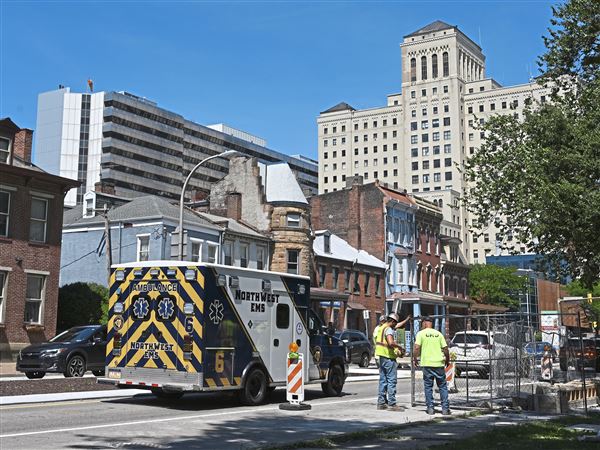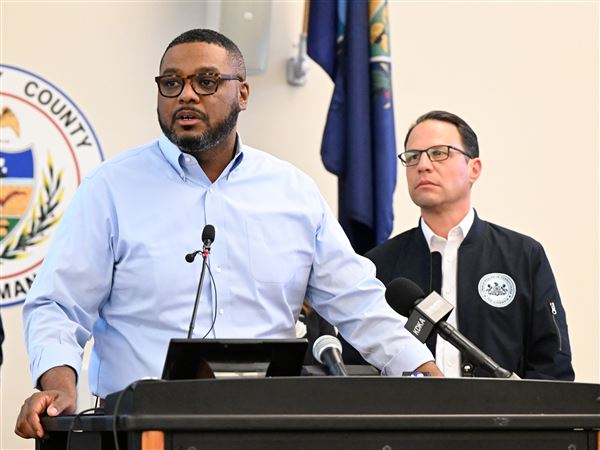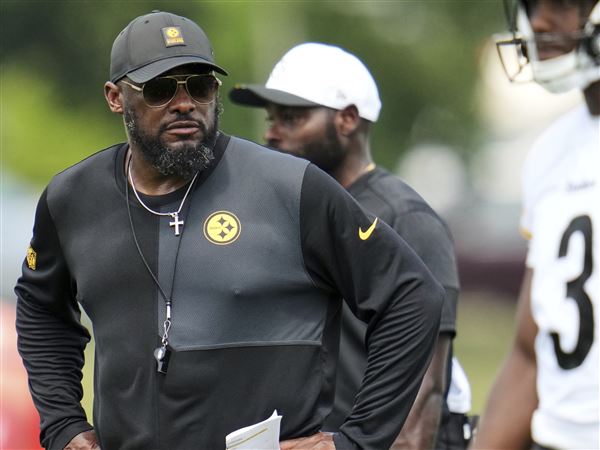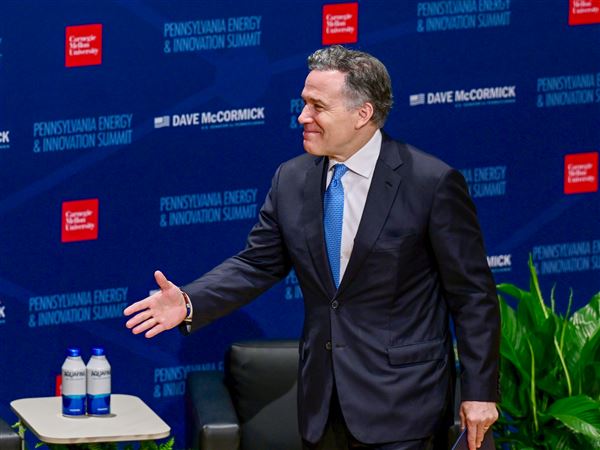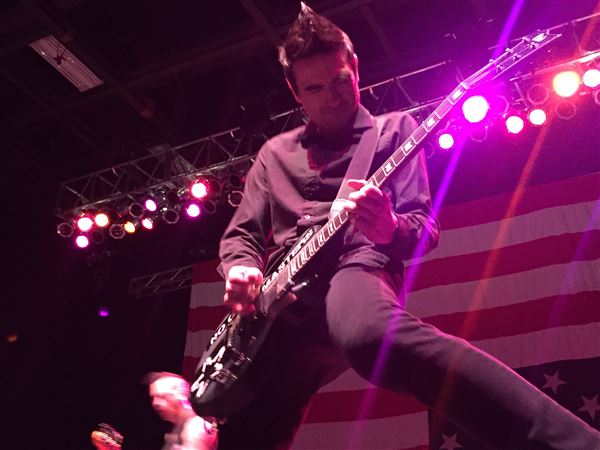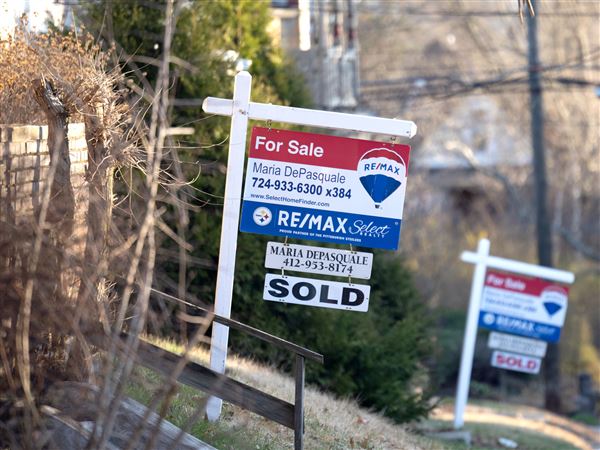Those wanting to stop construction of a new Ambridge high school may have the support of the public, but that means nothing in the courtroom, and those wanting to stop construction took a hard loss in the courtroom last week.
A group opposed to the $44.3 million project had asked Beaver County Common Pleas Judge Robert E. Kunselman to issue an injunction stopping it, claiming the district couldn't borrow that much. The groups' argument was undermined when the district borrowed the rest of the money July 13, and it dropped the request Friday, two days after Kunselman, in a hearing, asked them bluntly why they were "wasting everyone's time."
Greg Gleason, attorney for the anti-building group, said Monday that they would be scrutinizing the district's numbers both in the deal struck July 13 and in all other deals concerning the school. But he granted that "the district obviously made some significant efforts to try to address and correct the deficiencies we identified."
Gleason said the district still had to answer the underlying legal complaint, which contends the board violated the law last winter when it approved a $44 million project even though it had borrowed only $30 million to pay for it.
"This was one chapter, and there will be many chapters," he said.
If so, they'll have to be short chapters: School board President Robert Appel said Friday that the board intended to award bids by the middle of this month and break ground Sept. 1.
Appel and other supporters of a new building would thus be realizing a plan they launched two years ago, and would be completing a campaign to upgrade the district's buildings in general. In recent years, the district has built two elementary schools and renovated two others.
They would also, however, be acting against the implied will of the district's voters. In a primary campaign dominated by questions about the new high school, Appel and two other pro-building board members, Ron Churchin and Stanley Duplaga, were swept in both parties by anti-building newcomers Brian Padgett, William Scherfel and Jeffrey Stenzel.
Barring write-in campaigns or other far-fetched electoral oddities, the three will win the November general election and join board members Fritz Retsch, William Mazur and Bernard Logan to form a majority opposed to the building.
They won't be sworn in, however, until Dec. 1, and by then, construction is likely to be well under way, meaning the board would be breaking contracts and leaving work partly done if it pulled the plug.
That's the primary reason Padgett, Scherfel, Stenzel, Retsch, Mazur and Logan, joined by residents John Holbrook and John Fardo, filed the court challenge in the first place. Unfortunately for them, the will of the electorate is not, at least in this case, relevant in court.
"The fact of the matter is that the election turned on clear public positions," Gleason said. "But that's not a legal issue. ...
"It's there, but it's not something we can litigate."
For his part, Appel disputes that the vote really did express the will of people in the district generally.
"It's definitely the right thing to do, for the community and for the students, It's a pre-World War II building," he said of the existing high school.
Gleason said, in some ways, the board's actions supported the opponents' initial claims: In borrowing an additional $9 million and showing the availability of another $5 million July 13, it tacitly confirmed that it had not borrowed enough when it approved the project last winter.
"I think it's reasonable to think they've put their borrowing capacity out there to the max," he said. "We want to be looking at the information they have to back these up. ... The case is far from over."
First Published: August 4, 2005, 4:00 a.m.
